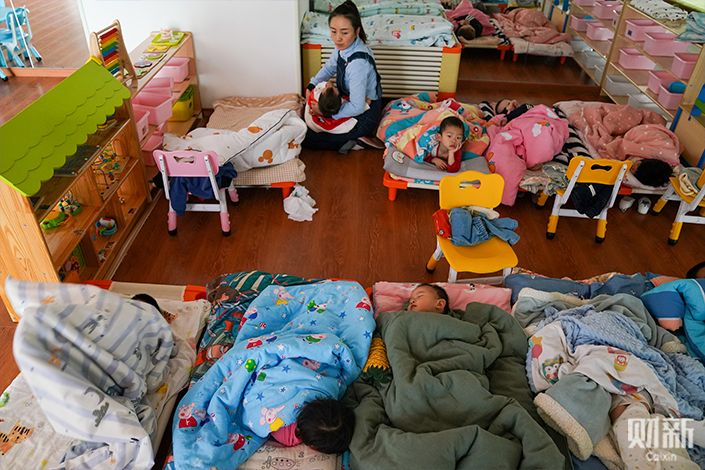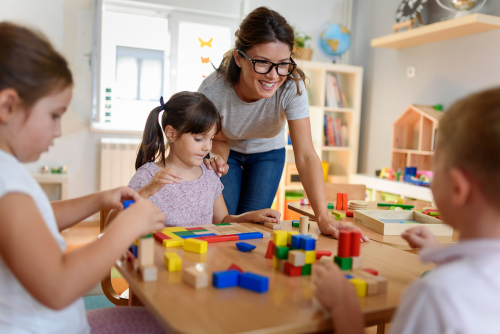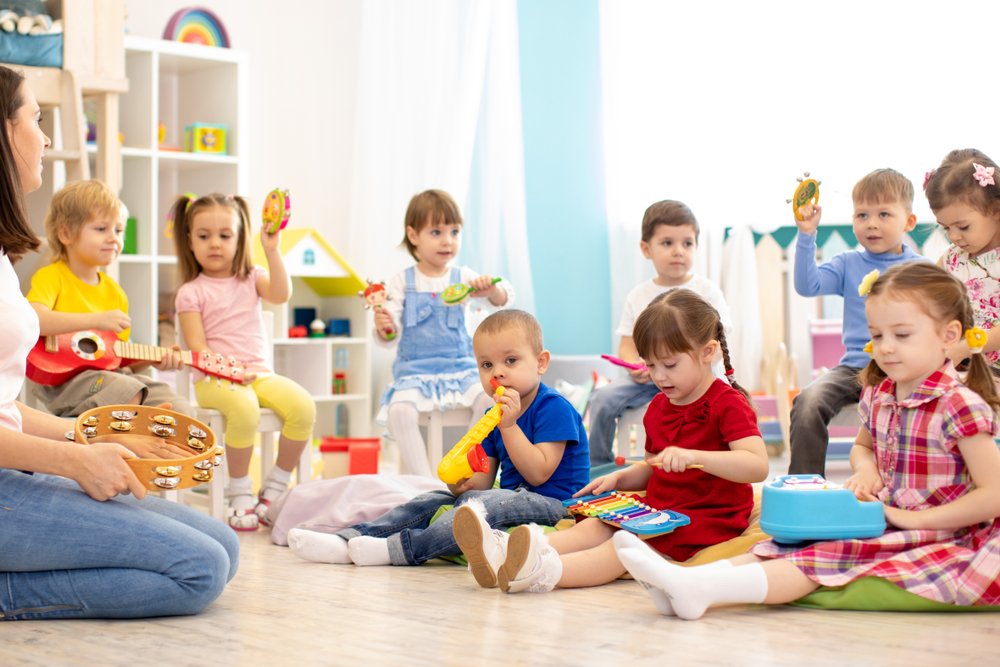Your Ultimate Resource for Baby Daycare Near Me: Tips for Selecting the most effective
Your Ultimate Resource for Baby Daycare Near Me: Tips for Selecting the most effective
Blog Article
Recognizing the Value of Daycare for Your Young child's Social Development and Discovering Knowledge With Engaging Tasks
The significance of childcare in shaping a toddler's social growth and knowing can not be overemphasized, as it provides an organized environment loaded with appealing activities that are essential for very early development. As we check out the multifaceted benefits of childcare, one need to consider just how these foundational experiences affect a kid's future social interactions and total development.

Advantages of Social Communication
Social communication plays a critical duty in the developing trajectory of young children, working as a structure for essential social skills. Involving with peers permits kids to exercise interaction, find out to express their feelings, and develop empathy. Via shared play and teamwork, they begin to understand social standards, such as taking turns and sharing, which are vital elements of effective interpersonal relationships.
Furthermore, social interactions contribute to cognitive growth. As young children connect with their peers, they boost their language abilities, broaden their vocabulary, and improve their capacity to express ideas and sensations. This exchange of ideas cultivates essential reasoning, as kids find out to bargain, address troubles, and browse disputes.
Additionally, social communication promotes psychological regulation. Direct exposure to different social circumstances helps toddlers acknowledge and handle their emotions, inevitably causing higher resilience and versatility. The capacity to form friendships and add-ons additionally boosts their feeling of belonging and self-esteem, which are vital for overall wellness.
Relevance of Engaging Tasks
Engaging activities are important for cultivating a revitalizing setting that boosts toddlers' social development. These tasks not just astound young children's focus yet also advertise active participation, enabling them to explore their environments creatively. With play-based learning, kids create necessary abilities such as problem-solving, teamwork, and empathy, every one of which are critical for building healthy and balanced relationships with peers.
Taking part in appealing activities, such as group games, art jobs, and interactive narration, motivates kids to reveal their ideas and feelings. This expression is crucial for emotional intelligence and aids them understand the perspectives of others. When toddlers engage in these activities with each other, they find out to bargain roles, share sources, and collaborate, which are basic aspects of social interaction.
In addition, a well-structured atmosphere that includes varied and stimulating tasks helps in keeping toddlers encouraged and concentrated. This motivation cultivates a love for finding out and expedition, laying the foundation for future instructional experiences. Eventually, engaging activities in childcare setups are essential in shaping social abilities, preparing young children for successful communications past the class, and nurturing their total advancement during these formative years.
Developing Interaction Skills
Reliable interaction skills are vital for young children as they browse their early social interactions. In a childcare setting, children are subjected to diverse social scenarios that motivate spoken and non-verbal interaction. Involving in discussions with peers and caregivers cultivates language advancement, allowing kids to express their feelings, needs, and thoughts better.

In addition, childcare atmospheres supply chances for toddlers to mimic and observe interaction styles of their adults and peers. This observational knowing is crucial as kids detect social cues, tone, and body language, which are visit the site important components of efficient communication.
Cultivating Freedom and Confidence
As kids fine-tune their interaction skills, they concurrently begin to discover their freedom and develop confidence in social setups (daycare for infants near me). Day care offers a structured atmosphere where children can participate in various tasks that encourage autonomy. From selecting their own tasks to taking part in team jobs, these experiences equip toddlers to make decisions and share themselves
In a day care setup, children are usually presented with possibilities to solve troubles independently, whether it's finding out just how to share toys or settling conflicts with peers. This fosters vital reasoning and advertises self-reliance. In addition, caretakers support this advancement by offering positive support and guidance, assisting children to navigate social communications with confidence.

Team tasks, such as cooperative video games or collaborative art tasks, assist in teamwork and show toddlers the importance of interacting. With these interactions, children find out to communicate their feelings and ideas, better enhancing their self-worth and social skills.
Eventually, promoting freedom and confidence in day care not just prepares young children for future social atmospheres however additionally lays the groundwork for a resistant mindset, furnishing them with essential life skills as they proceed to find out and grow.
Building Lifelong Knowing Structures
A strong foundation for lifelong discovering is crucial for kids, as their early experiences shape their attitudes towards education and learning and interest. Childcare settings play a pivotal role in this developing stage by offering structured opportunities for exploration and engagement. Engaging activities, such as group play, crafts and arts, and interactive narration, boost cognitive growth while urging social interaction.
With these experiences, young children discover crucial skills such as analytical, communication, and teamwork. They are presented to the idea of learning as a satisfying, collective process as opposed to a task, which cultivates a favorable mindset towards education. Additionally, read the article direct exposure to diverse viewpoints and peer communications in day care settings improves emotional intelligence, advertising compassion and durability.
Caregivers and educators additionally add significantly to constructing this structure by modeling curiosity and excitement for learning. By urging concerns and helping with discussions, they develop an environment where youngsters feel risk-free to express themselves and discover new ideas. Inevitably, the mix of supportive relationships and interesting activities in childcare settings prepares for a long-lasting love of discovering, equipping toddlers with the abilities and frame of mind necessary for future academic and individual success.
Final Thought

The value of day care in shaping a young child's social advancement and knowing can not be overstated, as it supplies an organized atmosphere filled up with engaging activities that are crucial for very early development.Social interaction plays a vital duty in the developing trajectory of kids, serving as a foundation for crucial social abilities. When young children engage in these activities together, they find out to discuss roles, share resources, and team up, which are basic facets of social interaction.
Inevitably, engaging activities in day care settings are crucial in forming social abilities, preparing young children for successful communications beyond the class, and supporting their total development throughout these developmental years.
Ultimately, the benefits of interesting tasks in day care setups play a considerable duty in preparing young children for future social communications and challenges. daycare near me for infants.
Report this page